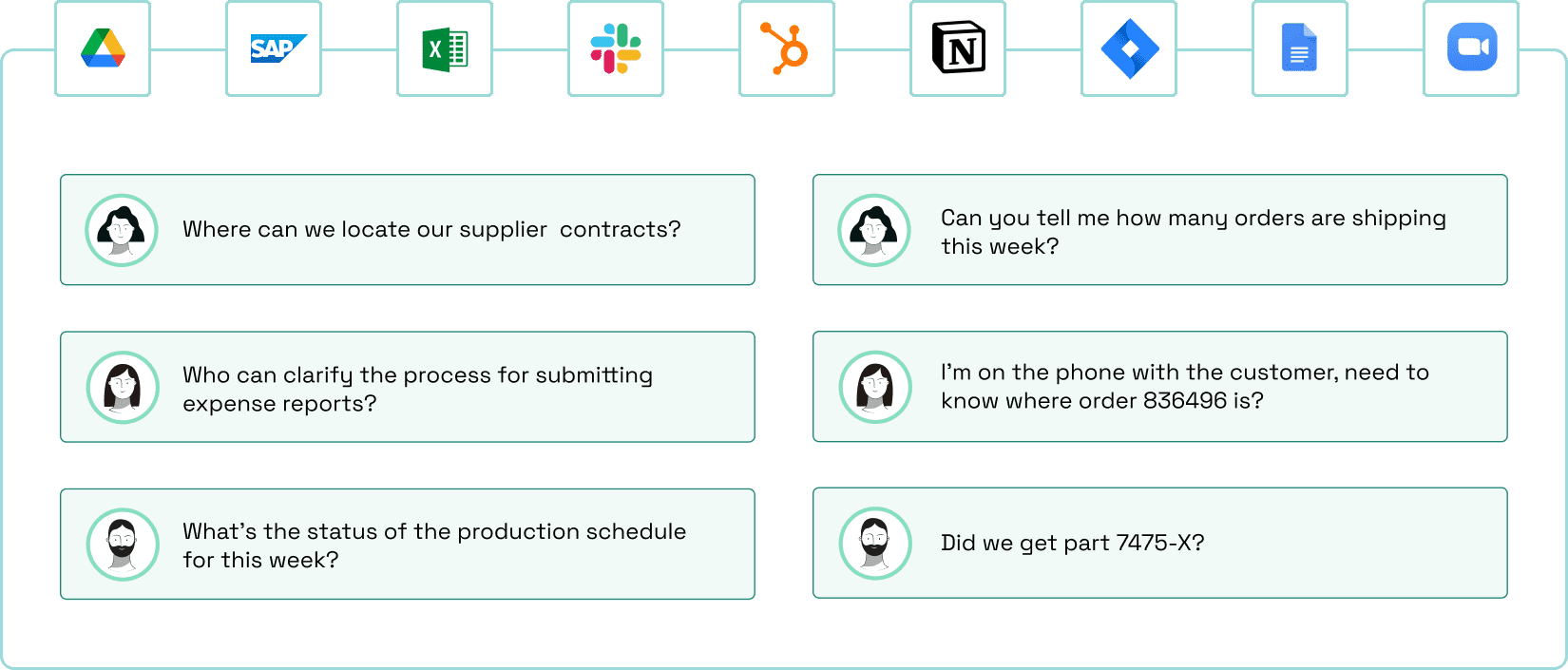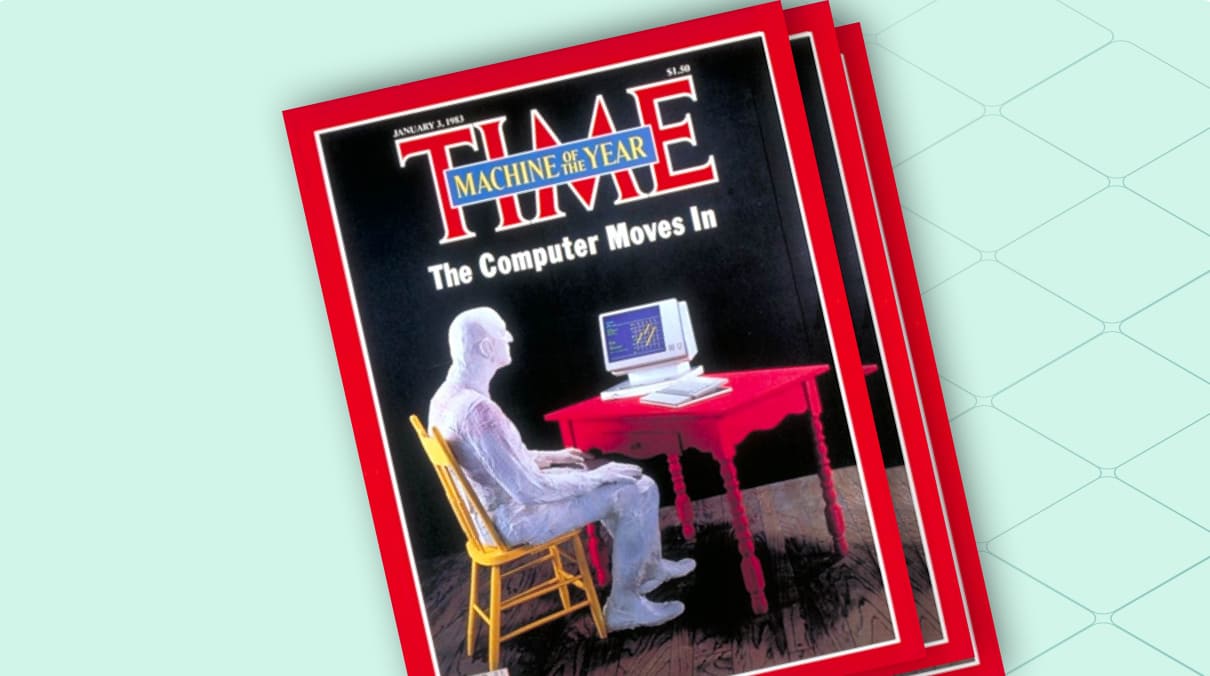Breaking the silence in your workplace: AI chatbot for employees

Most of the world’s breakthrough innovations – from discovering fire to making self-driving cars – are a result of curiosity. Curiosity is a vital trait for organizations to cultivate, as it leads to higher-performing and more adaptable employees.
But with more than 70% of people being afraid to ask questions at work, you may be experiencing stifled innovation and growth without even realizing it. Today more than ever, employees may hesitate to voice their inquiries, fearing that their questions might be dismissed or that they will face rejection from peers or superiors.
The need for instant access to information
Workplaces struggle when employees can’t find needed information or aren’t sure what to look for. This leads to longer search times and hampers productivity instead of improving it.
Studies show people spend about 30% of their workday searching for answers. Add to this the fact that a typical business uses 130 apps to collaborate and you’ll quickly understand why employees are getting lost in the sea of scattered data.
Earlier this year, Notion released Q&A, a feature that lets employees ask questions across their knowledge, docs, projects, meeting notes, and more. This is only one example of AI chatbots taking on a role of an all-knowing teammate who’s always available to help.
Use cases: AI chatbots in sales teams, schools, and manufacturing facilities
In April, Twilio introduced RFP Genie, an AI tool using OpenAI’s GPT-4. It swiftly handles RFPs, finds relevant info in internal files, and creates responses. The sales team then transfers the text into a document with minor adjustments.
What used to take two weeks for two staff members now takes minutes. CEO Jeff Lawson states the RFP bot allows engineers to focus on complex problems needing human understanding.
Another interesting use case comes from Cottesmore, UK. Cottesmore School has introduced an AI chatbot as a virtual headteacher to help with school management.
This chatbot, named Abigail Bailey, aids in making decisions and improving education, as students get a personal AI chatbot to support their learning.
Then there’s Freedman Seating Company. Instead of toggling between various applications, Freedman employees can seamlessly search across all necessary platforms using Seraf. This allows them to access information from Notion, Slack, Jira, and Google Drive—by asking Seraf like it was their colleague.
Tom, one of the employees at Freedman, had spent more than two hours searching for his paystub.
First, he fumbled his email for 10 minutes searching for it fruitlessly. Then he navigated the HR portal for another half hour, encountering login problems and poor UX. He then gave up and emailed the HR assistant who was on a lunch break. One and a half hours later, Tom has finally received his paystub.
Today, Tom can now surface any document by simply querying Seraf. And it takes him less than five minutes to do so.
The future of chatbots in workplaces
Chatbots, with their conversational interfaces, are transforming the way employees interact with their organization’s digital systems.
By allowing staff to ask any question and receive an immediate answer, workplace chatbots help to streamline workflows and significantly reduce the time spent searching for information.
They are programmed to understand natural language, which means employees can make inquiries in the same way they would with a human colleague.
The implementation of chatbots also has a profound impact on employee engagement and satisfaction. The ability to quickly obtain answers and resolve issues contributes to a more empowered and autonomous workforce.
Employees feel supported and are able to focus on more creative and strategic tasks, leading to increased job satisfaction and a more innovative workplace culture.
However, the rise of chatbots for employees does not come without challenges. Privacy concerns, the need for high-quality data to train the AI, and the potential for reduced human interaction are issues that organizations must address. It is crucial to ensure that chatbots are used to augment, not replace, human expertise and that they operate within strict ethical and privacy guidelines.
Introducing Seraf
Modern businesses use a large number of SaaS applications, leading to scattered data across many platforms. This results in a complex mix of different user interfaces and systems, causing inefficiency, internal confusion, and poor decision-making. There’s a growing need for a solution that can manage this complexity effectively.
Meet Seraf, a privacy-first, chat-based AI tool that sits at the core of your organizational intelligence. Seraf digs through the tools you use to provide answers you need to be more productive.
And so, for example, you can ask Seraf to dig out your latest payslip, or ask it to tell you who’s currently on vacation.

Unlike AI chatbots like ChatGPT that are powered by large language models (LLMs) trained on what we lovingly call “the Internet”, Seraf is trained on your internal knowledge. It can pull information from Notion, Slack, Google Drive and 120 other SaaS apps.
Imagine a workplace where curiosity not only survives but thrives. That’s what Seraf is all about.
Get valuable insights about AI and business automation
Ready to level up your business?





